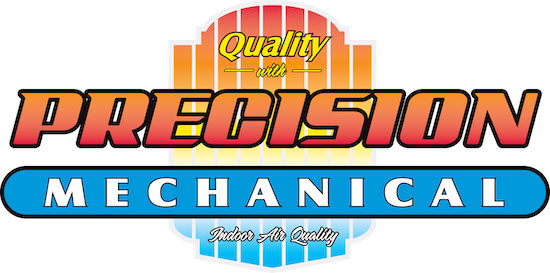Completing the search for your first home is an exhilarating experience. You’re probably juggling a dozen things or more about making the right choice. We believe that understanding your potential new HVAC system is essential. The property’s HVAC system represents a substantial investment and potential source of long-term costs, so being thorough should be a top priority for first-time homebuyers.
In the following guide, we’ll share seven tips for learning everything you can about a home’s heating and cooling system. And if you want a more in-depth opinion from the pros, feel free to call Precision Mechanical. Our seasoned technicians can help you compare your options with industry insights you won’t find elsewhere.
1. What Type of HVAC System Is It?
Start by identifying what kind of HVAC system the home has. Furnaces generally last longer compared to air conditioners, and relatively new types of HVAC products like heat pumps can offer average life spans that are even longer. Knowing the make and specific model gives you a clear understanding of how much maintenance it will require.
2. How Long Ago Was the System Installed?
It also helps to learn how old the HVAC system is when you’re looking at a new home. In general, HVAC systems last about 10-12 years. Having the knowledge of when it was installed helps you anticipate future maintenance needs or considerations if it might shut down for good. Older systems are more prone to problems, so budgeting for a replacement unit might be needed faster than expected.
3. Is the Warranty Still in Effect?
Check if the HVAC system is covered by a warranty. If it is, this can assist with maintenance costs. HVAC warranties often cover parts and labor, but it’s important to note that details will vary. Review any terms you don’t recognize to make sure you fully understand your coverage and potential out-of-pocket costs.
4. When Was the Last Time It Received Maintenance?
Don’t forget to check the maintenance history of the HVAC system, if such information is accessible. This kind of information can demonstrate if the system constantly broke down or how much upkeep was provided. You should at least try to track down a history of key tasks such as changing the air filter, which means it enjoyed more regularly scheduled tune-ups.
5. Are You Aware of the System’s Energy Efficiency Ratings?
Finding a home that features an HVAC system with great energy efficiency isn’t just smart; it leads to more manageable utility bills and less of an impact on the environment. Check out the seasonal energy efficiency ratio (SEER) ratings for air conditioning along with the annual fuel utilization efficiency (AFUE) for furnaces. The higher the SEER rating, the more efficient the cooling over the whole season, while strong AFUE ratings illustrate that the fuel is more effectively burned for useable heat.
6. Have You Noticed Signs of Problems During Your Inspection?
Even if you don’t have experience in HVAC systems, you can still take a moment to check out the HVAC system yourself. Look for signs of problems that weren’t mentioned by the seller or real estate agent. This can mean bizarre noises, stubborn patches of the house that are too hot or cold and attempts to cover up any serious damage.
7. Have You Asked Your Local HVAC Professional?
If you’re still hesitant to make an offer because of the overall state of the HVAC system, it’s beneficial to get an assessment and recommendation from experienced HVAC technicians. They can spot things you might miss, such as refrigerant leaks, bad electrical connections or flawed ductwork.
A Consultation with Precision Mechanical Helps Take the Stress Out of Your Home-Buying Journey
Choosing your first home ought to be exciting, and Precision Mechanical will do everything possible to ensure yours is too. Get in touch with us at 605-206-3766. We can talk about how our HVAC services give you peace of mind, giving you what you need to step into your new home with confidence.













